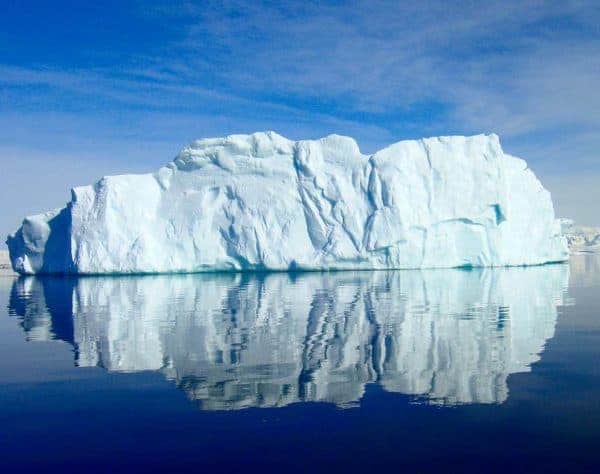
 The Antarctic Ice Sheet plays a bigger role in the regulation of global temperatures than previously thought, according to new research published in the journal Nature.
The Antarctic Ice Sheet plays a bigger role in the regulation of global temperatures than previously thought, according to new research published in the journal Nature.
At over 13 million square kilometres in size (Canada itself is only 10 million km2), the Antarctic Ice Sheet is thought to contain 60 per cent of all the fresh water on Earth. If the whole sheet were to melt, scientists estimate that sea levels around the world would rise over 60 metres.
And climate change has already had its impact on Antarctica, as warm water continues to circulate underneath its ice shelves, causing huge chunks to calve off. The widely reported loss of the Larsen ice shelves on the Antarctic Peninsula is but one particularly foreboding example of how global warming is affecting the environment at the South Pole.
But at the same time that climate change impacts the Antarctic, the Antarctic has its own effect on global weather patterns and temperatures. Such is the conclusion reached in a new study by an international group of experts led by researchers at Oregon State University who studied sediment cores from the sea floor surrounding Antarctica dating back 8,000 years.
“One thing we determined right off the bat was that virtually all of the climate models had the Antarctic Ice Sheet as a constant entity,” says Pepijn Bakker, study co-author and former post-doctoral researcher at Oregon State, now with the MARUM Center for Marine Environmental Studies at the University of Bremen, Germany. “It was a static blob of ice, just sitting there. What we discovered, however, is that the ice sheet has undergone numerous pulses of variability that have had a cascading effect on the entire climate system.”
As the sediment cores contain grains of sand brought there by the calving off of icebergs from the ice sheet, the team was able to accurately date when over past millennia changes in temperatures had caused greater – and sometimes fewer icebergs – to get dumped into the ocean.
What they found was that even during the relatively stable climatic period of the past 8,000 years, the ice sheet has shown a remarkable variability in the amount of icebergs that have calved off, with some centuries showing much more iceberg dumping than others.
“There is a natural variability in the deeper part of the ocean adjacent to the Antarctic Ice Sheet – similar to the Pacific Decadal Oscillation, or El Niño/La Niña but on a time scale of centuries – that causes small but significant changes in temperatures,” Andreas Schmittner, climate scientist at Oregon State and study co-author. “When the ocean temperatures warm, it causes more direct melting of the ice sheet below the surface, and it increases the number of icebergs that calve off the ice sheet.”
Climatologists are still trying to piece together the complex interplay of forces that affect global temperatures, with the science of teleconnections – how weather-related events on one side of the globe have their effect on the other – being one of the more intriguing aspects. While most are familiar with phenomena like the El Niño Southern Oscillation, where warmer waters collecting off the west coast of South America in the fall have their resulting impact the following winter and spring in the Northern Hemisphere. El Niños affect atmospheric currents, cause changes to the jet stream and commonly produce milder winters in Western, Northwestern and Central Canada.
The changes in iceberg calving have their impact, too, say the study’s authors, who note that the icebergs bring large amounts of fresh water to the Southern Ocean, thus affecting the build-up of sea ice in the region.
Leave a Reply
You must be logged in to post a comment.




 Share
Share Tweet
Tweet Share
Share




Comment